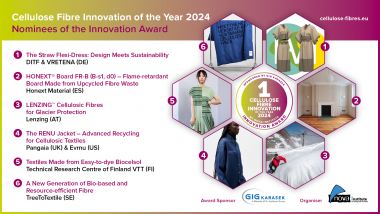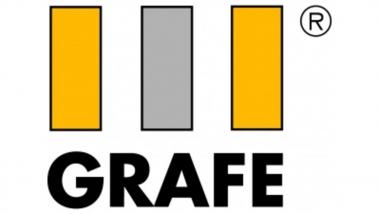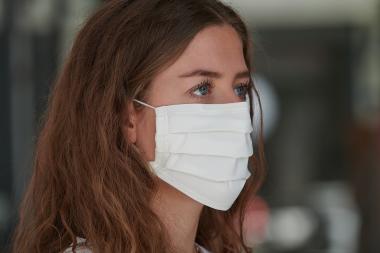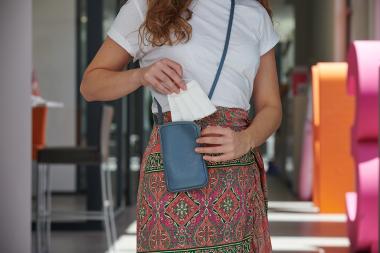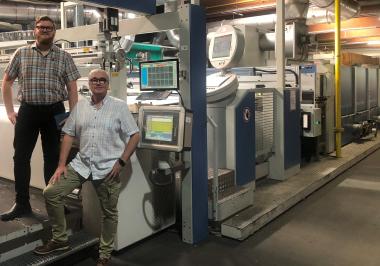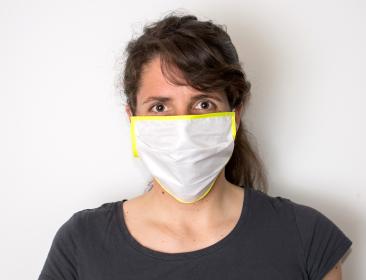Nominated Innovations for Cellulose Fibre Innovation of the Year 2024 Award
From Resource-efficient and Recycled Fibres for Textiles and Building Panels to Geotextiles for Glacier Protection: Six award nominees present innovative and sustainable solutions for various industries in the cellulose fibre value chain. The full economic potential of the cellulose fibre industry will be introduced to a wide audience that will vote for the winners in Cologne (Germany), and online.
Again nova-Institute grants the “Cellulose Fibre Innovation of the Year” award in the context of the “Cellulose Fibres Conference”, that will take place in Cologne on 13 and 14 March 2024. In advance, the conferences advisory board nominated six remarkable products, including cellulose fibres from textile waste and straw, a novel technology for dying cellulose-based textiles and a construction panel as well as geotextiles. The innovations will be presented by the companies on the first day of the event. All conference participants can vote for one of the six nominees and the top three winners will be honoured with the “Cellulose Fibre Innovation of the Year” award. The Innovation award is sponsored by GIG Karasek (AT).
In addition, the ever-growing sectors of cellulose-based nonwovens, packaging and hygiene products offer conference participants insights beyond the horizon of traditional textile applications. Sustainability and other topics such as fibre-to-fibre recycling and alternative fibre sources are the key topics of the Cellulose Fibres Conference, held in Cologne, Germany, on 13 and 14 March 2024 and online. The conference will showcase the most successful cellulose-based solutions currently on the market or those planned for the near future.
The nominees:
The Straw Flexi-Dress: Design Meets Sustainability – DITF & VRETENA (DE)
The Flexi-Dress design was inspired by the natural golden colour and silky touch of HighPerCell® (HPC) filaments based on unbleached straw pulp. These cellulose filaments are produced using environmentally friendly spinning technology in a closed-loop production process. The design decisions focused on the emotional connection and attachment to the HPC material to create a local and circular fashion product. The Flexi-Dress is designed as a versatile knitted garment – from work to street – that can be worn as a dress, but can also be split into two pieces – used separately as a top and a straight skirt. The top can also be worn with the V-neck front or back. The HPC textile knit structure was considered important for comfort and emotional properties.
HONEXT® Board FR-B (B-s1, d0) – Flame-retardant Board made From Upcycled Fibre Waste From the Paper Industry – Honext Material (ES)
HONEXT® FR-B board (B-s1, d0) is a flame-retardant board made from 100 % upcycled industrial waste fibres from the paper industry. Thanks to innovations in biotechnology, paper sludge is upcycled – the previously “worthless” residue from paper making – to create a fully recyclable material, all without the use of resins. This lightweight and easy-to-handle board boasts high mechanical performance and stability, along with low thermal conductivity, making it perfect for various applications in all interior environments where fire safety is a priority. The material is non-toxic, with no added VOCs, ensuring safety for both people and the planet. A sustainable and healthy material for the built environment, it achieves Cradle-to-Cradle Certified GOLD, and Material Health CertificateTM Gold Level version 4.0 with a carbon-negative footprint. Additionally, it is verified in the Product Environmental Footprint.
LENZING™ Cellulosic Fibres for Glacier Protection – Lenzing (AT)
Glaciers are now facing an unprecedented threat from global warming. Synthetic fibre-based geotextiles, while effective in slowing down glacier melt, create a new environmental challenge: microplastics contaminating glacial environments. The use of such materials contradicts the very purpose of glacier protection, as it exacerbates an already critical environmental problem. Recognizing this problem, the innovative use of cellulosic LENZING™ fibres presents a pioneering solution. The Institute of Ecology, at the University of Innsbruck, together with Lenzing and other partners made first trials in 2022 by covering small test fields with LENZING™ fibre-based geotextiles. The results were promising, confirming the effectiveness of this approach in slowing glacier melt without leaving behind microplastic.
The RENU Jacket – Advanced Recycling for Cellulosic Textiles – Pangaia (UK) & Evrnu (US)
PANGAIA LAB was born out of a dream to reduce barriers between people and the breakthrough innovations in material science. In 2023, PANGAIA LAB launched the RENU Jacket, a limited edition product made from 100% Nucycl® – a technology that recycles cellulosic textiles by breaking them down to their molecular building blocks, and reforming them into new fibres. This process produces a result that is 100% recycled and 100% recyclable when returned to the correct waste stream – maintaining the strength of the fibre so it doesn’t need to be blended with virgin material.
Through collaboration with Evrnu, the PANGAIA team created the world’s first 100% chemically recycled denim jacket, replacing a material traditionally made from 100% virgin cotton. By incorporating Nucycl® into this iconic fabric construction, dyed with natural indigo, the teams have demonstrated that it’s possible to replace ubiquitous materials with this innovation.
Textiles Made from Easy-to-dye Biocelsol – VTT Technical Research Centre of Finland (FI)
One third of the textile industry’s wastewater is generated in dyeing and one fifth in finishing. But the use of chemically modified Biocelsol fibres reduces waste water. The knitted fabric is made from viscose and Biocelsol fibres and is only dyed after knitting. This gives the Biocelsol fibres a darker shade, using the same amount of dye and no salt in dyeing process. In addition, an interesting visual effect can be achieved. Moreover, less dye is needed for the darker colour tone in the finished textile and the possibility to use the salt-free dyeing is more environmentally friendly.
These special properties of man-made cellulosic fibres will reassert the fibres as a replacement for the existing fossil-based fibres, thus filling the demand for more environmentally friendly dyeing-solutions in the textile industry. The functionalised Biocelsol fibres were made in Finnish Academy FinnCERES project and are produced by wet spinning technique from the cellulose dope containing low amounts of 3-allyloxy-2-hydroxypropyl substituents. The functionality formed is permanent and has been shown to significantly improve the dyeability of the fibres. In addition, the functionalisation of Biocelsol fibres reduces the cost of textile finishing and dyeing as well as the effluent load.
A New Generation of Bio-based and Resource-efficient Fibre – TreeToTextile (SE)
TreeToTextile has developed a unique, sustainable and resource efficient fibre that doesn't exist on the market today. It has a natural dry feel similar to cotton and a semi-dull sheen and high drape like viscose. It is based on cellulose and has the potential to complement or replace cotton, viscose and polyester as a single fibre or in blends, depending on the application.
TreeToTextile Technology™ has a low demand for chemicals, energy and water. According to a third party verified LCA, the TreeToTextile fibre has a climate impact of 0.6 kg CO2 eq/kilo fibre. The fibre is made from bio-based and traceable resources and is biodegradable.
nova Institut


